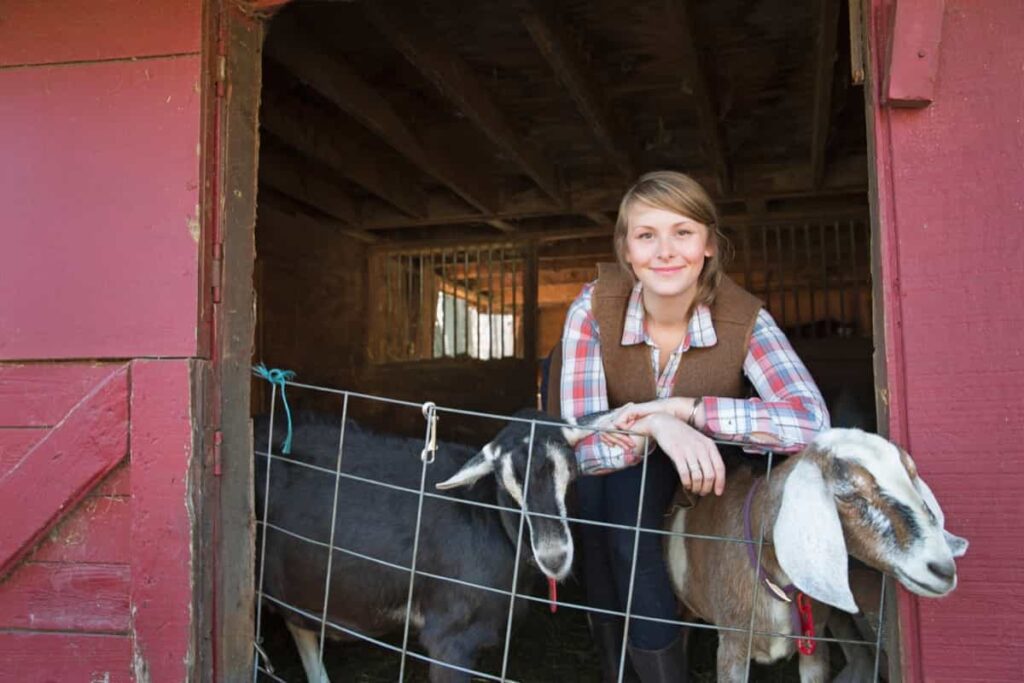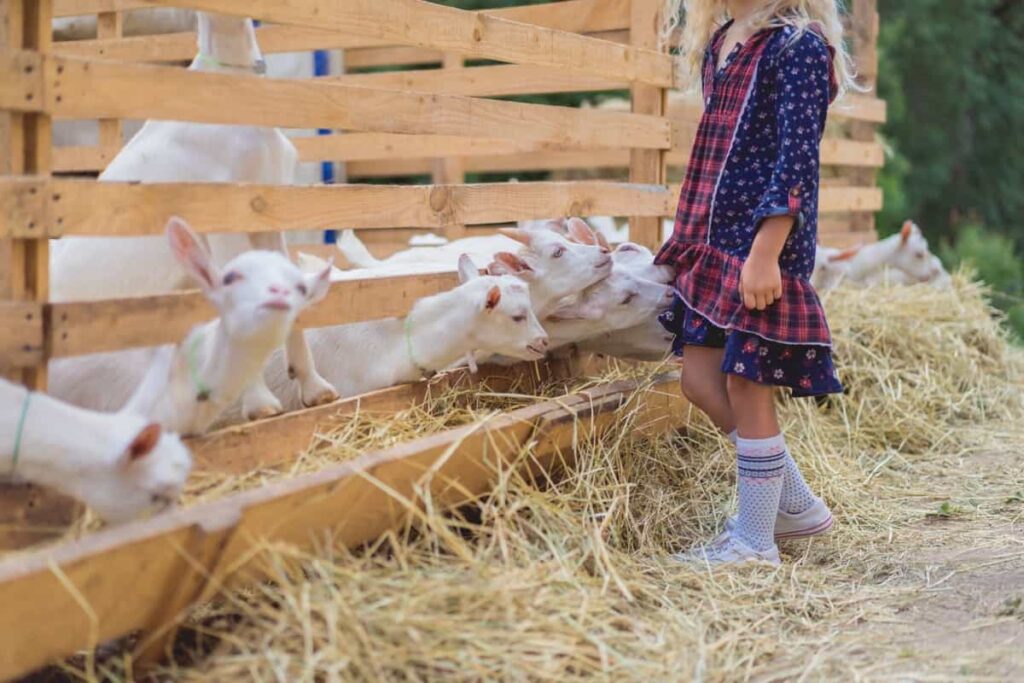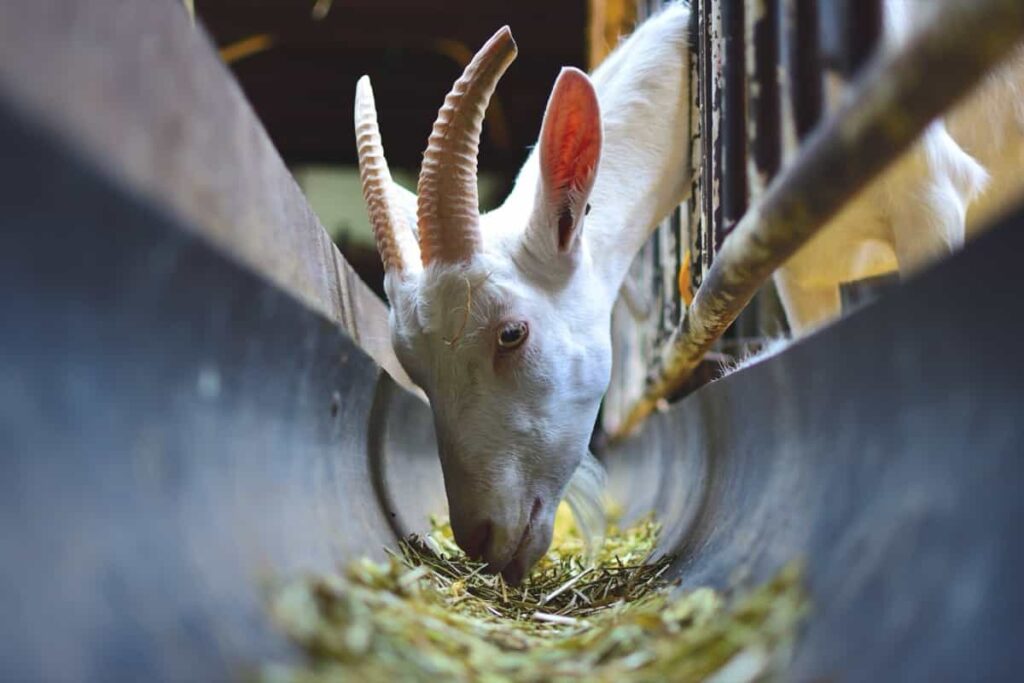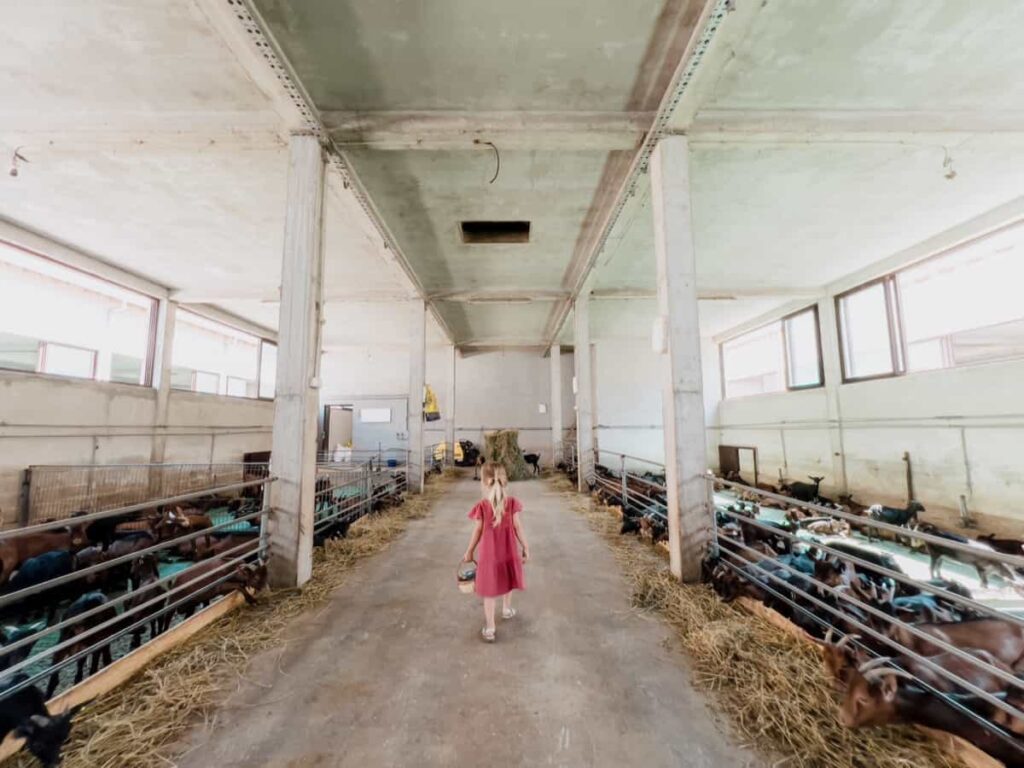Legal and regulatory considerations play an important role in the success of goat farmers. Understanding to these regulations is essential for maintaining compliance, mitigating risks, and ensuring the overall well-being of both the goats and the business. The primary reason why legal and regulatory considerations are important for goat farmers is because they help protect animal welfare.

Legal and Regulatory Considerations for Goat Farmers
Zoning and Land Use Regulations for Goat Farming
Zoning laws vary from region to region, so it’s essential to research and familiarize yourself with the specific regulations in your area. Some areas may have agricultural zoning, which allows for farming activities like goat raising, while others may restrict certain types of livestock or require special permits.
Before purchasing or leasing land for your goat farm, it’s important to check if the property is zoned for agricultural use. Additionally, it would help if you considered factors such as proximity to residential areas or sensitive environmental zones, as they may have specific restrictions. To navigate these regulations successfully, it’s advisable to consult with local government authorities or a professional who specializes in agricultural law.
Environmental Regulations and Compliance for Goat Farms
The important aspect of environmental regulations for goat farms is waste management. Proper disposal of manure and other waste products is crucial to prevent water contamination and air pollution. Farmers must follow guidelines on storage, handling, and application of manure to avoid runoff into nearby water bodies or leaching into groundwater sources.
Another critical consideration is the use of chemicals and pesticides on goat farms. Maintaining good pasture management practices plays a significant role in preserving soil quality and preventing erosion. Rotational grazing techniques help distribute grazing pressure evenly across different areas while allowing time for vegetation regrowth between rotations.
Health and Safety Regulations in Goat Farming
The important aspect of health and safety regulations is the proper handling and storage of hazardous materials such as pesticides, medications, and cleaning agents. Goat farmers must follow guidelines for their safe use, storage, and disposal to avoid potential health hazards. Proper sanitation practices are also essential in maintaining a healthy environment for both goats and humans on the farm. Regular cleaning of barns, feeding areas, water sources, and equipment helps prevent the spread of diseases among animals while minimizing health risks for farmers.
In case you missed it: How to Utilize Technology in Modern Goat Farming Operations

Farmers should also be aware of any specific regulations regarding ventilation systems in goat housing facilities. Proper air circulation is vital to maintain good respiratory health for both animals and workers. Regular veterinary care is another critical aspect of ensuring the health and safety of goats on a farm. Farmers must adhere to recommended vaccination schedules as well as monitor herd health regularly to detect signs of illness or disease early on.
Animal Welfare Laws and Regulations for Goat Farming
The important aspect of animal welfare regulations is providing suitable housing for goats. This includes adequate space, proper ventilation, and protection from extreme weather conditions. Goats should have access to clean water at all times, as well as appropriate feed that meets their nutritional needs.
Another key consideration is the handling and transportation of goats. Healthcare plays an important role in maintaining good animal welfare standards on goat farms. Regular veterinary check-ups, vaccinations, and parasite control measures are essential for keeping your herd healthy. Furthermore, animal welfare laws often address issues related to the humane treatment of goats during breeding practices.
Insurance and Liability Considerations for Goat Farmers
The important type of insurance for goat farmers is general liability insurance. This protects against third-party claims for bodily injury or property damage caused by your goats or your farm operations. For example, if a visitor gets injured on the property or if one of your goats damages someone else’s property, liability insurance can help cover the costs.
Another essential insurance consideration is product liability coverage. Livestock mortality insurance is also worth considering for goat farmers. Additionally, some states may require workers’ compensation insurance if you have employees working on your farm.
Taxation and Financial Regulations for Goat Farming Businesses
Running a successful goat farming business involves more than just taking care of your goats and selling their products. Depending on the structure of your farm, you may be subject to different tax obligations. For example, if you operate as a sole proprietorship or partnership, you may report your income and expenses on your tax return.
In case you missed it: How to Maximize Profit in Goat Farming: Best Practices and Techniques

On the other hand, if you have formed a corporation or limited liability company (LLC), separate tax returns will need to be filed. In addition to income taxes, there are other financial regulations that goat farmers should be aware of. This includes keeping detailed records of all business transactions and expenses, such as feed costs, veterinary bills, equipment purchases, and any loans taken out for the farm.
Employment Laws and Regulations for Goat Farming Operations
Goat farmers need to understand their obligations as employers. This includes complying with minimum wage laws, ensuring proper record-keeping of employees’ hours worked and wages paid, and providing a safe working environment. Additionally, goat farmers must also be aware of any specific regulations related to hiring foreign workers or employing minors. There may be additional requirements or restrictions when it comes to these types of employees. In order to ensure compliance with employment regulations, goat farmers may need to implement certain policies and procedures within their operations.
Food Safety and Quality Regulations for Goat Products
Food safety regulations for goat products encompass various aspects such as storage, handling, processing, labeling, and transportation. The main aspect of food safety regulations is proper storage and handling practices. In addition to storage and handling, proper labeling is crucial for goat products. Processing facilities where goat products are produced must adhere to specific guidelines regarding cleanliness and sanitation. Regular inspections may take place by regulatory authorities to ensure compliance with these requirements.
Import and Export Regulations for Goat Products
Exporting goat products can provide great opportunities for farmers to tap into international markets. However, it’s important to be aware of the specific regulations that govern these activities. Each country may have different requirements regarding documentation, certification, packaging, labeling, and transportation methods.
For exporters of goat products, it’s essential to research and comply with the import regulations of your target countries. On the other hand, if you’re considering importing goat products from other countries, you’ll need a comprehensive understanding of your own country’s import regulations.
Legal Considerations for Value-Added Goat Products
These considerations ensure that your products meet the necessary standards and regulations, protecting both your customers and your business. The important aspect is labeling and packaging regulations. Additionally, if you plan on selling your value-added goat products across state lines or internationally, you’ll need to navigate import and export regulations.
This involves understanding country-specific requirements for labeling, certifications, permits, documentation, customs duties, and sanitary measures. Finally, you may also want to consider liability insurance coverage specifically tailored for value-added product businesses.
In case you missed it: How to Diversify Your Goat Farm by Adding Value-Added Products

Frequently Asked Questions (FAQ) on Legal and Regulatory for Goat Farmers
Do I Need Any Permits or Licenses to Start a Goat Farm?
Yes, in most cases, you will need certain permits and licenses to operate your goat farm. The specific requirements change depending on your location, so it’s essential to research and comply with the regulations of your local government agency.
Are There Any Specific Regulations Regarding Milk Production from Goats?
Absolutely. If you plan on selling or distributing goat milk commercially, you’ll likely need to follow stringent guidelines set by regulatory agencies like the Food and Drug Administration (FDA).
Do I Need a License or Permit to Start a Goat Farm?
Yes, in most cases, you will need to obtain the necessary licenses and permits from your local authorities. These may include zoning permits for agricultural use and animal handling certifications.
What Regulations Should I Be Aware of When It Comes to Goat Health and Welfare?
As a responsible farmer, you must comply with animal welfare regulations by providing adequate housing, nutrition, and veterinary care and ensuring proper waste management practices.
Conclusion
Legal considerations help maintain food safety and quality standards. Regulations outline requirements related to hygiene, disease prevention measures, medication usage, record-keeping protocols, and more. Legal considerations are vital when it comes to producing safe and high-quality products. These regulations are put in place to ensure the safety of both animals and consumers, as well as protect the environment.
- Types of Grass Growing for Goat Farm
- How to Train Goats for Milking: A Beginners Guide
- Goat Milking Practices and Equipment: A Beginner’s Guide
- Goat Farming for Fiber: Producing Mohair and Cashmere
- Maximizing Goat Milk Production: Tips for Dairy Goat Farmers
- Goat Farming as a Family Business: Strategies for Success
- Profitable Kenya Goat Breeds for Commercial Dairy and Meat Business
- Unlock the Secrets of Oberhasli Goat: Discover Raising and Management Practices
- Ultimate Guide to Myotonic Goats: Explore Profile to Raising